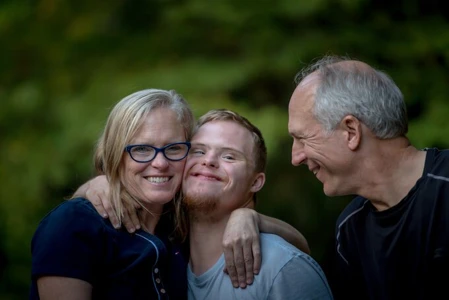Like many other sectors, the housing market was hit hard by the coronavirus when the country went into lockdown, back in March 2020. Luckily, however, it bounced back, and you may have now noticed many more houses are up for sale; but what’s driving this activity?
Spending more time at home seems to have made people realise what they’d like from their homes - whether that’s being close to the country, a garden, an office room etc. The 2020 Renovation Nation Report by money.co.uk found that UK homeowners invested an average of £4,035.70 each on home renovations since the start of lockdown*. However, for those who don’t want to do the renovation work, or want to relocate, it’s likely that the rise in house prices has also tempted people to move too.
First time buyer struggles
Whilst this is great for those who already own a home, it’s quite a different picture for some first time buyers who are now struggling to get on the property ladder due to the increase in house prices.
Saving for a deposit in the first place can be difficult, but now having to find an even larger sum could potentially mean many first time buyers are being locked out of the housing market, unable to realistically afford these higher house prices. Although the stamp duty holiday was a welcome helping hand, it still doesn’t help first time buying with finding the money upfront for a deposit.
Let’s not also forget that many young people are being made redundant as the impact of Covid-19 is starting to show and the official forecast for unemployment is set to hit 3.5 million by Christmas**. Younger, more inexperienced employees are likely to be hit the hardest by redundancy, again leaving them feeling pretty pessimistic about how they’re going to afford to buy their first house.
Bank of Mum and Dad: our saviour?
With their own finances falling short, it’s understandable that those wanting to buy their own home are turning to family for financial help. The Bank of Mum and Dad (Bomad) have already been named the ninth biggest mortgage lender in the past, and it looks like they’re about to become the saviour of the housing market as more and more are relying on Bomad since Covid-19.
According to the latest research (October 2020) by Legal & General, almost one in four (23%) transactions in 2020 will be backed by the bank of Mum and Dad***.
Nigel Wilson, CEO of Legal & General, said: “Not only are buyers facing an uncertain economic future, but changes by lenders in the wake of the pandemic have restricted the low deposit mortgage options on which many young people rely to make their first step.”
So it’s become clear that family and friends are already playing a crucial role in the recovery of the UK housing market. According to researchers, family and friends will provide financial help towards roughly 175,000 housing transaction in 2020, with an estimated total value of £50bn****.
The downside to the Bank of Mum and Dad
Although it’s great that parents will help youngsters get on the property market still, whilst at the same time contributing to the recovery of the housing market, it does pose the question: what about those who can’t rely on parents for help? It doesn’t seem fair that others should miss out on the same opportunities, just because they don’t have the financial backing from relatives.
There are concerns that those buyers who don’t have help from Mum and Dad, could potentially find themselves locked out of the housing market, unable to afford the increasing deposit amounts that are now needed to become a homeowner.
Also, there’s the question of whether we’re simply moving the crisis away from first time buyers (for those who have access to help) and onto the older generation. What about the impact this might have on the parents’ finances? Do they have other provisions in place for their retirement years, or a potential care plan? Or by helping their child onto the property ladder, are they sacrificing their own current, or future, lifestyle? All difficult questions which we do not yet know the answer to - what we do know is, a global pandemic is something none of us have experienced before so unfortunately, we’re navigating through the unknown.
What the lenders have to say
Nationwide has acknowledged the problems this could cause, and as a result, they’ve introduced a rule whereby if you applied for a 90% mortgage, you’d be asked to prove that less than a quarter of the deposit was gifted to you. If you aren’t able to prove this, your mortgage application will be declined. However, don’t forget that other lenders will have different approaches, so it’s always worth speaking with a mortgage adviser who can help find the right lender and mortgage product for your circumstances.
Other help is out there
There are plenty of other options to help support first time buyers, such as the guarantor mortgage where parents can help their children get on the property ladder by acting as their safety net, in case they miss their mortgage payments. There is also the Lifetime ISA for first time buyers, so make sure you ask your mortgage adviser about these options too.
*https://www.linkedin.com/pulse/uk-homeowners-spend-over-50b-lockdown-renovations-tom-bower/?trackingId=Zhz1T1fUCmeyEUXb25z21Q%3D%3D
**https://www.theguardian.com/commentisfree/2020/sep/02/the-guardian-view-on-house-prices-a-return-to-boom-and-bust
***https://www.legalandgeneral.com/bank-of-mum-and-dad/
****https://www.theguardian.com/money/2020/sep/01/more-uk-homebuyers-turn-to-bank-of-mum-and-dad-as-covid-crisis-bites
Important information
Your home may be repossessed if you do not keep up repayments on your mortgage.
There may be a fee for mortgage advice. The actual amount you pay will depend on your circumstances. The fee is up to 1% but a typical fee is 0.3% of the amount borrowed.

